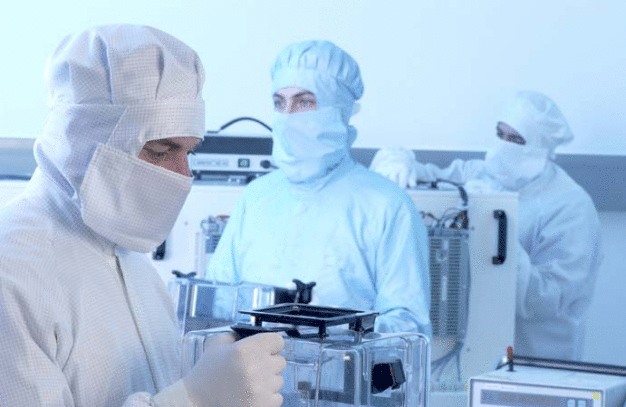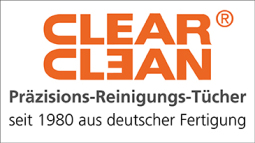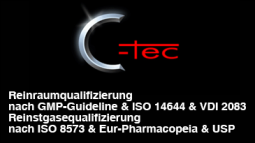Cleanroom Pioneers
Europe’s first Academic Cleanroom Engineers complete their studies at Graz University of Technology
The first and only study programme for cleanroom technology in Europe was launched two years ago when industrial partners, the Styrian Human Technology Cluster and Graz University of Technology joined forces. Now Europe has its first Academic Cleanroom Engineers. Oriented to the requirements of the business world and industry, the programme has special features that have impacted its development and implementation.
Cleanroom pioneers in demand
Cleanroom technology is required in almost all areas of business involved in production and processing as well as in many services and the health care sector, which has resulted in its ongoing technological development. The cleanroom market is one of the fastest growing markets, and there is great demand for qualified cleanroom engineers. Twelve experts have just completed the four semester study programme in cleanroom technology at Graz University of Technology and are well prepared for a career in this area. The programme is part-time, allowing students to work alongside their studies. Johannes Khinast, head of the study programme: “Successful participants in the programme have obtained the perfect skills to apply current technologies as well as to design and implement new complex developments.”
An exemplary initiative
On the initiative of Josef Ortner, owner of Ortner Cleanroom Engineering, and Johann Kurz, former departmental manager in the Federal Ministry of Health, Graz University of Technology and subsequently Johannes Khinast, head of the Institute of Process and Particle Engineering, were approached by the industry with the idea of a scientifically sound academic educational programme for cleanroom technology. Christine Stöckler-Penz, head of Life Long Learning at Graz University of Technology and responsible for administration of the programme, explains: “What was special about the design of this programme was that we developed it along with 13 industrial partners, thanks to whose support it was possible to establish the scientific programme.” The programme was also funded by the “Forschungskompetenzen für die Wirtschaft” (Research Competencies for the Economy) programme of the Austrian Research Promotion Agency (FFG). Robert Gfrerer, former director of the Styrian Human Technology Cluster and currently CEO of Ortner Cleanroom Engineering, also played a significant role in developing this programme and talks of a “paradigm shift in cooperation between the partners.” According to Gfrerer, “up to now, companies have not been involved in the process of how higher educational offerings are developed and approved.”
State of the art e-teaching
Another special feature of the programme was the large share of e-learning elements. The study programme is the first at Graz University Technology to be consistently offered with different elements of online teaching from podcasts to livestreams. Quizzes were also given online and a virtual platform was set up that contains comprehensive information about cleanroom technology. Stöckler-Penz: “In this way, we took into account the needs of our students who completed the programme while working full-time.” Successful participants in the study programme receive the title “Akademische/r Experte/Expertin in Reinraumtechnik” (Academic Expert in Cleanroom Technology). Thanks to the success and continued demand from the industry, the study programme Cleanroom Technology will soon be offered again by Graz University of Technology – Life Long Learning.
TU Graz Life Long Learning
8010 Graz
Austria









